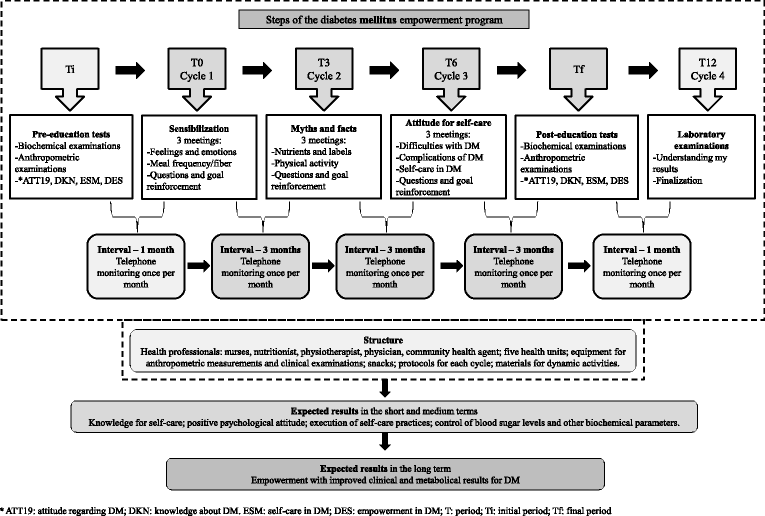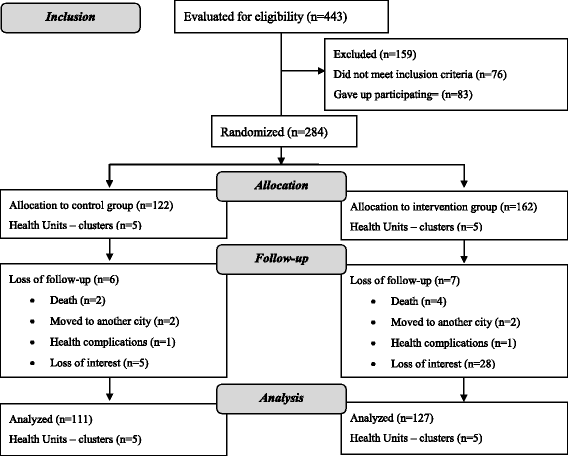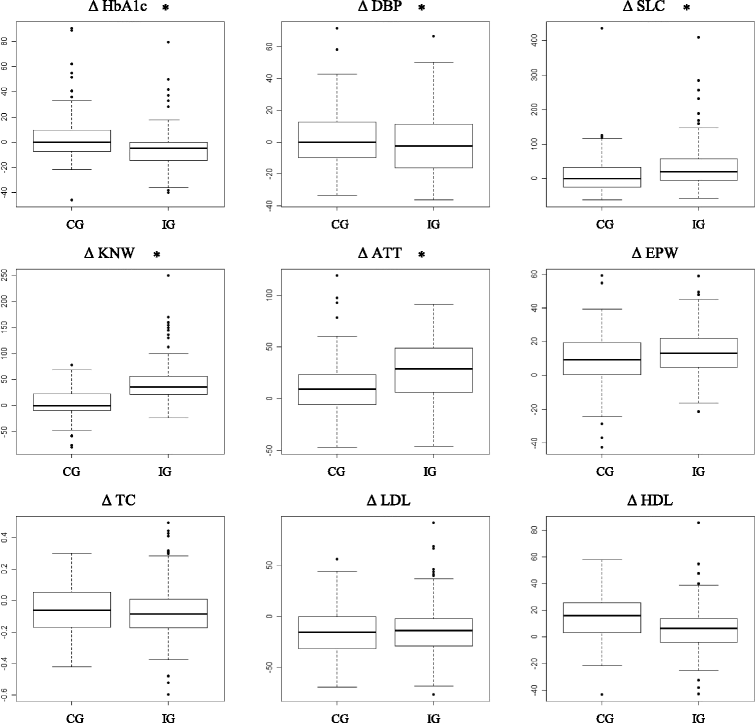Evaluating the effectiveness of an empowerment program for self-care in type 2 diabetes: a cluster randomized trial
- PMID: 28061840
- PMCID: PMC5219728
- DOI: 10.1186/s12889-016-3937-5
Evaluating the effectiveness of an empowerment program for self-care in type 2 diabetes: a cluster randomized trial
Abstract
Background: The prevalence of type 2 diabetes mellitus is increasing substantially worldwide, leading to serious economic effects, complications and deaths. This study evaluated the effectiveness of an empowerment program providing support for psychosocial, behavioral, and clinical aspects of diabetes to help Brazilian users of public health services obtain metabolic control of this condition.
Methods: In this cluster randomized trial, participants aged 30-80 diagnosed with type 2 diabetes were recruited from ten Brazilian public health units in 2014 and 2015. Five units were randomly assigned to receive the empowerment program based on a behavior change protocol, and five continued to receive only conventional treatment. The primary outcome was the biochemical and anthropometric parameters, and the secondary outcomes were self-care, attitude, knowledge and empowerment related to diabetes. The effect of the experiment was defined as the percentage variation between the values at the initial and final periods. To evaluate this effect and to compare it in the two groups, tests were used for paired and independent samples, respectively.
Results: There were 238 participants: 127 and 111 in the intervention and control group, respectively. For glycated hemoglobin, the mean effect in the control and intervention groups was 3.93 and -5.13, respectively (p < 0.001). Levels of glycated hemoglobin and other metabolic indicators, as well as the most part of the secondary outcomes showed a significant difference in the experimental group compared to the control group.
Conclusions: The empowerment program improved metabolic control of type 2 diabetes in Brazilian users.
Trial registration: NCT02132338 - April 22, 2014.
Keywords: Diabetes type 2; Health education; Primary health care; Randomized controlled trial; Self care.
Figures



References
Publication types
MeSH terms
Associated data
LinkOut - more resources
Full Text Sources
Other Literature Sources
Medical
Miscellaneous

